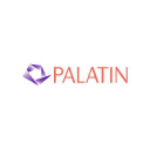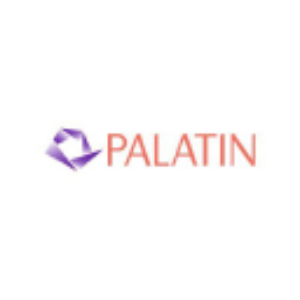Welcome to our dedicated page for Palatin Tech news (Ticker: PTN), a resource for investors and traders seeking the latest updates and insights on Palatin Tech stock.
Palatin Technologies, Inc. (PTN) is a biopharmaceutical innovator developing receptor-specific therapies for conditions with high unmet medical needs, including obesity, inflammatory diseases, and ocular disorders. This page provides investors and industry professionals with timely updates on the company’s clinical progress, regulatory milestones, and strategic initiatives.
Access comprehensive coverage of Palatin’s press releases and news articles, including updates on melanocortin receptor-targeted drug development, clinical trial results, and partnership announcements. Our curated repository ensures you stay informed about key developments in the company’s pipeline, such as PL8177 for ulcerative colitis and MC4R agonist programs for metabolic disorders.
Content spans regulatory filings, research collaborations, patent updates, and analysis of scientific presentations. Bookmark this page for streamlined access to verified information about Palatin’s advancements in peptide therapeutics and receptor modulation strategies. Check back regularly for objective reporting on how the company addresses complex medical challenges through precision drug development.
Palatin Technologies will announce its Q3 fiscal year 2022 operating results on May 17, 2022, before the U.S. markets open. The company will also host a conference call at 11:00 a.m. ET the same day, reviewing the operating results and providing updates on ongoing programs. Access to the call will be available through the company's website. Palatin focuses on developing innovative biopharmaceutical products to address significant unmet medical needs.
Palatin Technologies (NYSE American: PTN) announced presentations at the ARVO 2022 Annual Conference in Denver from May 1-4. The posters highlight data from a Phase 2 study of PL9643 for treating dry eye disease (DED), revealing statistically significant improvements in symptoms after 2 and 12 weeks of dosing, with no safety concerns. A Phase 3 study (MELODY-1) is currently enrolling participants, with topline data expected in Q4 2022 and a potential NDA submission in H1 2024. These efforts underline Palatin's commitment to developing innovative therapies for significant unmet needs.
Palatin Technologies (NYSE American: PTN) presented at the Eyecelerator@ASCRS 2022 Conference in Washington D.C. on April 21, 2022. The presentation, led by CEO Carl Spana, focused on melanocortins' role in treating ocular diseases and shared Phase 2 results of PL9643 for Dry Eye Disease (DED). Positive outcomes were reported, showing significant improvement in symptoms with excellent ocular tolerability. The ongoing Phase 3 study (MELODY-1) aims to provide topline data in Q4 2022, with an NDA submission planned for early 2024.
Palatin Technologies (PTN) announced a webinar scheduled for March 7, 2022, at 10:30 am ET, focusing on the unmet medical needs in dry eye disease (DED). KOL Eric D. Donnenfeld will present the current treatment landscape, while CMO Michael Raizman will discuss the Phase 3 trial for PL9643, a melanocortin agonist aimed at treating DED. The MELODY-1 study plans to enroll 400 patients at multiple U.S. sites, with top-line results expected in the second half of 2022. The webinar will include a Q&A session with experts.
Palatin Technologies (PTN) announced its fiscal Q2 results for the period ending December 31, 2021. The company reported a net loss of $8.7 million, or $0.04 per share, an improvement from the $10 million loss in the prior year. Cash and investments totaled $47.3 million. Palatin initiated a Phase 3 study for PL9643 targeting dry eye disease, with results expected in H2 2022. Despite an 18% decline in gross sales of Vyleesi, net product revenue rose 144%. Operational cash burn reduced significantly, affirming a cash runway until at least March 2023.
Palatin Technologies, Inc. (PTN) is set to announce its Q2 fiscal year 2022 operating results on February 15, 2022, prior to the market opening. Following the release, a conference call will take place at 11:00 a.m. ET, featuring a review of operating results and updates on ongoing programs. The event will be accessible via live audio webcast. Investors can access replay details from Palatin's website. Palatin focuses on developing innovative therapies targeting unmet medical needs within biopharmaceuticals.
Palatin Technologies, Inc. (NYSE American: PTN) announced a positive presentation regarding its drug PL8177 for treating ulcerative colitis at the Crohn's and Colitis Congress on January 21, 2022. The data revealed that PL8177 significantly improved colitis markers in an animal model and showed a decrease in immune response-related gene expression. Palatin plans a phase 2 clinical study for PL8177 later this year. CEO Carl Spana highlighted the importance of these findings for understanding melanocortin's role in inflammation.
Palatin Technologies, Inc. (NYSE American: PTN) announced its participation in the H.C. Wainwright BioConnect Virtual Conference from January 10–13, 2022. CEO Carl Spana, PhD, will discuss the company's pipeline and provide an update on the Phase 3 MELODY-1 study of PL9643 for dry eye disease. The presentation will be available for on-demand listening starting January 10 at 7:00 a.m. ET. Interested parties can request one-on-one meetings by contacting their H.C. Wainwright representatives or emailing ir@palatin.com.
Palatin Technologies (NYSE American: PTN) has commenced the pivotal Phase 3 MELODY-1 clinical study for PL9643, targeting dry eye disease. This multi-center study will enroll up to 400 patients across the U.S., with top-line results expected in the second half of 2022. Following positive Phase 2 results, Palatin has coordinated with the FDA on study design and key elements necessary for potential New Drug Application (NDA) filings. The Phase 3 program is categorized as a significant milestone for both the company and patients.
Palatin Technologies, Inc. (NYSE American: PTN) announced a Notice of Allowance from the U.S. Patent and Trademark Office for application No. 16/927,347. This patent pertains to the use of melanocortin peptides for reducing pro-inflammatory cytokine levels associated with cytokine storms, a condition linked to immune system dysregulation. CEO Carl Spana highlighted the significance of strengthening their intellectual property surrounding this technology, particularly given its potential implications for diseases like COVID-19. The patent broadens Palatin's portfolio of melanocortin receptor-1 peptides aimed at tackling inflammation.


